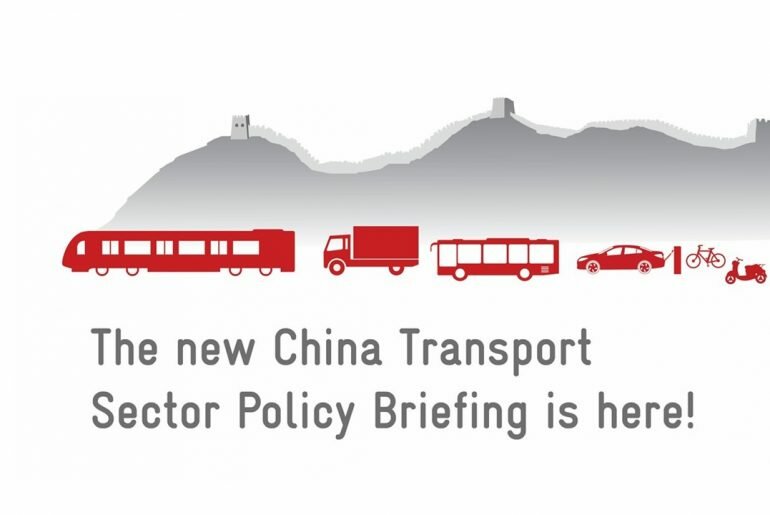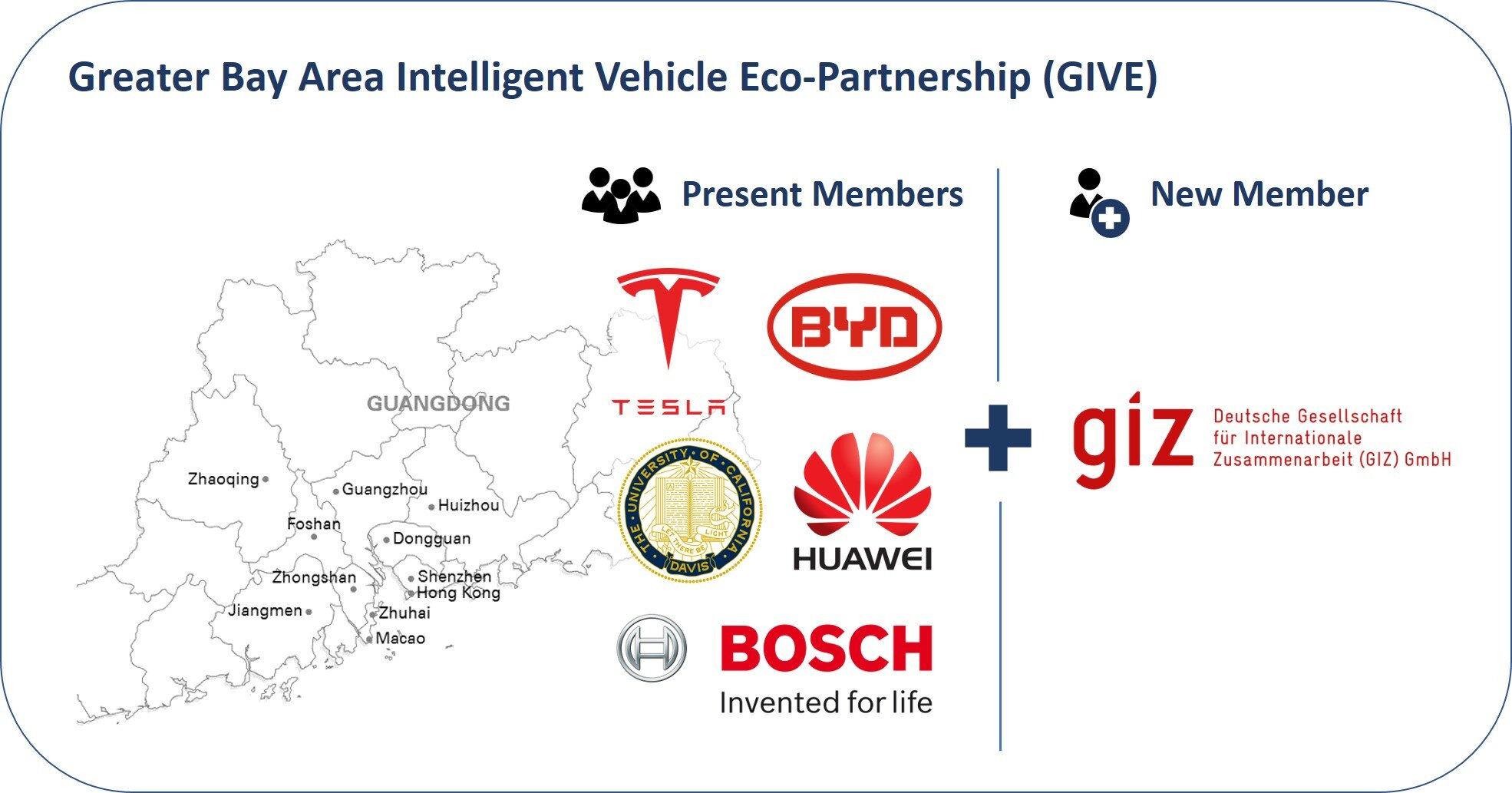China Transport Sector Policy Briefing – 2019, Issue 1 The newest issue of our China Transport Sector Policy Briefing is here! The Sustainable Mobility Team at GIZ in China provides you with regular summaries of new important policies in China’s transport sector. Please click here to download: China Transport Sector Policy Briefing Issue 1 2019 In the beginning of 2019, the Chinese government is planning to strengthen China’s automotive industry, with a focus on ICV and NEV industries, while curbing pollution caused by diesel trucks. Strengthening the automotive industries, restrictions over diesel trucks Based on the “Implementation Plan on Improving and Promoting the Consumption System (2018-2020)”, NDRC on 29 January 2019 released an “Implementation Scheme on Supply-Side Measures for Further Promoting Steady Growth of Consumption and Forming a Robust Domestic Market (2019)”. The scheme sets forth a series of measures to stimulate consumption and to upgrade the industry structure in…
China Transport Sector Policy Briefing – 2018, Issue 6 The newest issue of our China Transport Sector Policy Briefing is here! The Sustainable Mobility Team at GIZ in China provides you with regular summaries of new important policies in China’s transport sector. Please click here to download: China Transport Sector Policy Briefing Issue 6 2018 In the end of 2018, the Chinese government started significant measures to advance its logistics industry, while planning to strengthen the hydrogen fuel cell production in Jiangsu. Furthermore, new developments regarding New Energy Vehicle (NEV) and Intelligent and Connected Vehicle (ICV) industries were omnipresent. Reinventing the logistics industry, cleaner air for Beijing, intelligent ship building, battery recycling and hydrogen fuel cells Beijing intends to aid the phase out of heavily polluting heavy duty vehicles (HDVs) in the capital city. Since 1 December 2018, CHINA III diesel-fueled HDVs registered in Beijing are no longer permitted within…
China Transport Sector Policy Briefing – 5th Issue 2018 The 5th issue in 2018 of our China Transport Sector Policy Briefing is here! The Sustainable Mobility Team at GIZ in China provides you with a monthly summary of new important policies in China’s transport sector. Please click here to download: China Transport Sector Policy Briefing Issue 5 2018 Recently, the Chinese government focused on the development of New Energy Vehicles (NEVs) and Intelligent and Connected Vehicles (ICVs), while singling out Jing-Jin-Ji as a demonstration zone for structural adjustments in the transport sector. Additionally, the first standards for the transportation of dangerous goods and a report on the environmental impact of the transport sector were released. NEV and ICV development, measures for structural adjustments, environmental impact of emissions and standards for the transportation of dangerous goods After major national-level policies on New Energy Vehicles (NEVs) have been released in 2018, several…
Increased safety, an unprecedented level of comfort and a gain in personal time. These are the key promises of the global automotive industry for the future of mobility in the form of automated and connected driving. Less prominent in the advertising campaigns of manufacturers, yet of central social importance, are the potential effects of these technologies on the climate. Today, the transport sector is already responsible for around one quarter of global CO2 emissions, with road traffic accounting for the lion’s share at 17.5%. In addition, the so-called “diesel scandal” in Germany, triggered in 2015, has increasingly put the spotlight on the emission of harmful nitrogen oxides (NOx) in road traffic and the associated air pollution. In light of these considerable negative consequences for the climate and the environment, the development of new technologies raises the following important questions: How sustainable is the future of this new mobility? What potential…
China Transport Sector Policy Briefing – August, September 2018 The August/September edition of our China Transport Sector Policy Briefing is here! The Sustainable Transport Team at GIZ in China provides you with a monthly summary of new important policies in China’s transport sector. Please click here to download: China Transport Sector Policy Briefing August, September 2018 In August and September, the Three-Year Blue Sky Action Plan has been refined for the city of Beijing as well as for the aviation sector. The safety of new energy vehicles (NEVs), pollution in maritime transport, testing of intelligent and connected vehicles (ICVs), as well as financing of sustainable transport were high on the agenda these two months. NEV safety, subsidies, phasing out of sales of conventionally fueled vehicles in Hainan, reducing the impact of transport on pollution, ICV testing Beijing intends to reduce total emissions in the transport sector by 30% until 2020…
In 2017, 29 million new vehicles were sold in China – more than in the United States, Japan and India combined. This figure is expected to increase to at least 37 million by 2025, assuming a 3% annual growth rate. Given this vast market potential, the same question comes up time and again within the global automotive industry: What proportion of these vehicles will be so-called Intelligent and Connected Vehicles (ICVs)? China’s determination to become the world’s leading automotive nation is matched by their desire to shape the future of mobility. Together with the rapid increase in New Energy Vehicles (NEVs), the development of its ICV industry lies at the heart of this ambition. After some initial hesitation, China has undertaken numerous steps to accelerate the development of ICVs in 2018. Following recent legislative changes, the adoption of national strategies, as well as improvements in its connectivity-based technologies, it is…
In January 2018, China’s top economic planner, the National Development and Reform Commission (NDRC), set out ambitious targets for the development of Intelligent and Connected Vehicles (ICV) in its Draft Strategy for Innovation and Development of Intelligent Vehicles. Amongst others, the Chinese government aims for intelligent vehicles to account for 50% of all new cars sold in the country by 2020. To contribute to the realization of these goals, the Shenzhen Municipal Government together with China EV100 and the Green and Low-Carbon Development Foundation (GDF) launched the Greater Bay Area Intelligent Vehicle Eco-Partnership (GIVE) during the Global Intelligent Vehicle Summit on 20. June 2018 in Shenzhen. The objective of this high-level platform is to accelerate the formation of the ICV industry ecosystem in the Greater Bay Area (GBA), which encompasses Hong Kong, Macau as well as the province of Guangdong. The GBA not only features a combined GDP of $1.3…
The new China Transport Sector Policy Briefing is here! In our new China Transport Sector Policy Briefing, the Sustainable Transport Team at GIZ in China provides you with a monthly summary of new important policies in China’s transport sector. Please click here to download: Transport Sector Policy Briefing – June 2018 This month, it is all about Intelligent and Connected Vehicles (ICVs), regulations for road safety, car-hailing, the fight against air and environmental pollution, and the future of electro-mobility. ICVs, road safety, car-hailing, pollution, and the future of electro-mobility Since Chinese Premier Li Keqiang visited Toyota in Japan, Chinese ministries have started to take a closer look at hydrogen. Numerous events on the topic have been held and the Provincial Government of Guangdong already suggested more support for innovations in the New Energy Vehicle (NEV) industry. But not only hydrogen, batteries have also received a lot of attention. After Shenzhen’s…
At the invitation of China EV100, one of the most influential think tanks in China’s automobile industry, the 2018 Global Intelligent Vehicle (GIV) Summit was held in Shenzhen from June 20th to June 21st. Over the course of two days, numerous high-level participants from government, the automotive industry and academia gathered in China’s technology hub to share and discuss their insights on the future of Intelligent and Connected Vehicles (ICV). Overall, the participants projected a strong sense of confidence that China can not only keep up with the rest of the world, but in fact take the lead in the field of ICV in the coming years. This sentiment was underpinned through numbers presented by Mr. Xu Changming, Deputy Director General of the PRC State Information Center, a government think tank affiliated with the National Development and Reform Commission (NDRC). According to the estimates of the State Information Centre, ICV sales…




